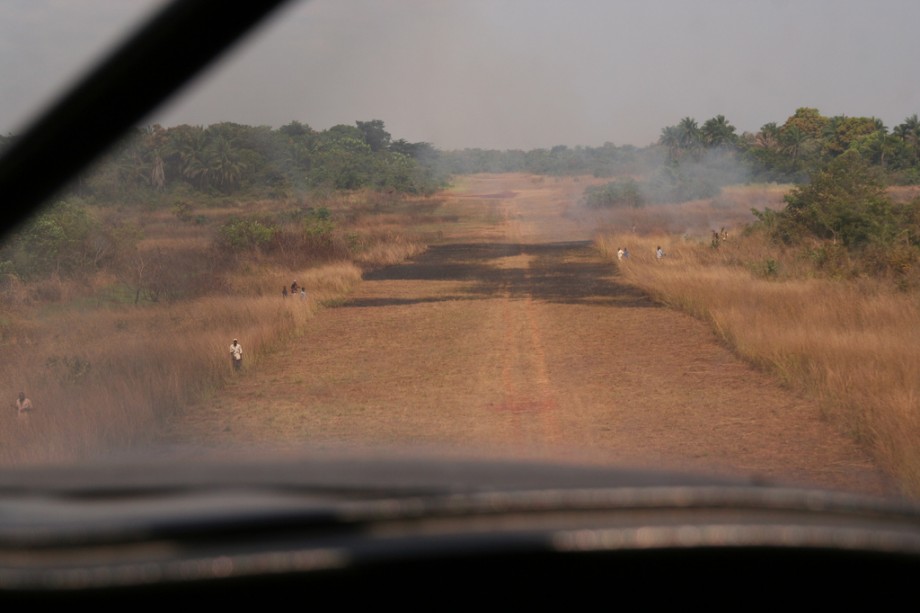Isadora Loreto is Head of Research and Development. She joined the Polis team in June 2014 as a researcher and quickly afterwards became Head of R&D. Specialised in conflict studies, it is during her work as a jurist in different NGOs and research centers that she developed a strong interest for innovative approaches in international cooperation and development.
Hi Isa, could you please describe for us what the Polis Project is?
The Polis Project is a project which connects people’s initiatives and projects to the resources they need. Take a women’s group in Kenya who wants to improve rural development: they have the ideas on how to do it but they lack the materials and financial support. Through its online platform the Polis puts the group of women in touch with potential partners who can provide them with exactly this support. The women then choose the partner they think fits best their request! This is just an example of people that can benefit from the Polis Project and its simple method. Many more people are out there with brilliant ideas and initiatives and do not have access to what they need to turn their ideas into reality.
What lead you to become part of The Polis Project?
While focusing on peace building in the Middle East region for my research activities, I was astonished to see how many aid and development organisations would apply ready-made solutions to local problems without first listening to local voices. I started to develop a strong interest for initiatives and organisations promoting locally led development and I soon became convinced it was the only way international development could be effective. It is through my research on such organisations that I heard about ReSeT and the Polis Project. And as soon as I learnt more about the project, I knew that it was exactly in line with the way I was envisioning international development. I was given the chance to become part of the team first as a researcher and then as Head of research. To be honest, I could not imagine a project which would better fit my vision of what international development should look like: « local actors and global actors coming together to achieve a common goal: improving the lives of people, with local actors being in the driving seat. »
As Head of Research and Development, you are a core member of the project; can you describe your role and key responsibilities?
At the Research and Development department, our work is divided into two units: we work on the development of the project and on publications. The development of the project includes four types of activities:(1) researching and supporting the fundraising and communication teams;(2) researching similar initiatives (a market research);(3) researching relevant articles and papers for the Polis Project, and (4) developing the Polis method. The publications unit regroups all kind of publications the team is doing as well as the website content and the newsletter content. On top of that we coordinate the consultancy work the team does. To sum up, as Head of R&D I make sure my team researches and finds the information necessary to develop our project and acquire more expertise!
What is your favourite part of being head of Research and Development?
Everyday when I wake up I am excited about the things R&D needs to do because I know if we advance, the project as a whole advances and develops. Most of the time, I have a pretty busy day ahead filled with different internal researches and publications. But most importantly, I know I can count on my team to be fully committed and do their best to provide the relevant information and boost the project. Apart from the obvious fact that I very much enjoy working at R&D, the most valuable thing of my work is the team spirit we have, it is what makes us go beyond ourselves, achieve our weekly or monthly goals and be creative in the ways that we address issues and challenges we face!
What kind of publications does the Polis Project focus on?
Although most of our work is typically focused on internal researches directly linked to the development of the project, publications are also essential. They indeed demonstrate our expertise and knowledge on local-global relationships. This is why all our Polis publications analyse local-global dynamics. I guess your next question would then be: “but what do local-global analyses mean?” It means that we focus on cases where there are interactions between the global and the local level, where global actors’ actions have an impact on the local level. The local level can be understood as community level, regional level or even national level. With the Polis Publications, our main goal is to give our perspective on relationships between the global and the local level. Because this is what the Polis is all about!
How does research & development contribute to the other departments in the Polis Project?
Let’s say that we are like the backbone of the Polis team! All our activities have one common goal: supporting the fundraising and the communications teams. It can be the research we do on specific organisations related to fundraising or communications, our market research on similar initiatives, which is essential to expand our knowledge of others that work in a similar way, or some field research necessary to understand the demand for the Polis Project. But it is also feeding them with articles and papers, which are relevant for our work and project. The fundraising and communications teams know they can rely on us to provide them with the most accurate information they need. This means that all the Polis teams: R&D, communications and fundraising work together to make the project advance and develop.
As R&D, you have contributed to the development of the Polis Postcards and Polis Perspectives, can you tell us a bit about them?
Both Polis Perspectives and Polis Postcards are recent initiatives by the team to strengthen our communication with our network.
With the Polis Perspectives, our idea was to give our perspective on a different article each week which one of us found very interesting. We also share articles we enjoyed reading and our favorite tweets of the week. It is a way for us to share what we find interesting and relevant and to connect the Polis Project to the broader development sector in a different way!
The Polis is all about access and connection being available for people at the local level, right? With the Polis Postcards, we wanted to give the opportunity to local people to present their initiatives and get some exposure. It is a simple idea just as if they were sending a Postcard telling us their story! On the top of that, it is a great way for us to get in touch with people that could benefit from the Polis Project and to envision potential further collaboration.
What are your ambitions with respect to research and development in the coming months?
My ambition is to see the Polis Project further develop and to continue making the work of R&D as relevant as possible! The coming months will be an intensive period for us so R&D will need to be at its sharpest and keep their eye on the ball. We will be focusing the team’s publications on today’s current global development issues, local realities, and local-global dynamics. Through our Polis Postcards and new weekly Perspectives, R&D hope to continue analysing, exploring and informing the public of our research and connection to the field!



